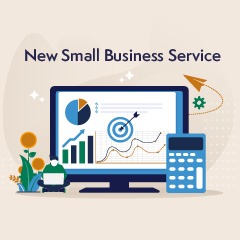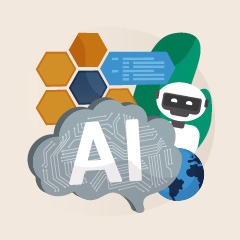Artificial Intelligence (AI) is certainly having its “iPhone moment”, capturing the popular imagination and gaining credibility but we are not yet at the stage of throwing accounts into a magical pot and receiving fully polished audited accounts back from a computer.
What are AI and ChatGPT?
AI is when computers perform tasks normally undertaken by humans. The technology traces its origins back to dusty history books to the Dartmouth Summer Research Project in 1956.
Modern AI began in the 1990s and 2000s when Machine Learning (ML), a subset of AI, flourished. ML is when a computer grows its understanding of a subject or decision-making ability by receiving more data.
ChatGPT has given AI an even higher profile. Launched in 2022, ChatGPT is an AI chatbot created by OpenAI. As The Times comments, the software is “trained on vast tracts of information from the internet and can be asked to do anything from generating film scripts or (pretty bad in our opinion) poetry.” A form of generative AI, it produces human-like text based on inputs.
The Benefits of ChatGPT
Already, people have made grand claims about AI. Sam Altman, OpenAI’s Chief Executive, said AI could “address some of humanity’s biggest challenges, such as climate change and curing cancer”. Despite these claims, AI can deliver tangible benefits today in efficiency, accuracy and industry insights. On a daily level, some firms are beginning to wake up to how AI can be used in their business on a practical level to aid communication, data analysis and learning.
The technology can automate customer service, handling queries at any time of the day. Already, basic tasks are handled by an AI chatbot on websites. This trend will continue. BT, for example, will automate customer service by the end of the decade, replacing 10,000 jobs. We’ll leave you to decide if that’s a benefit to anyone other than BT shareholders.
Data analysis could be revolutionised. AI will allow firms to understand customer behaviour on a far more granular level. We could see more useful accounting reports, analysis of trends and detailing of insights to gain a competitive edge. Real-time reports could be the norm. Buried in the letter pages of the Financial Times, one accounting professor believed AI could be for accounting what the spreadsheet was in the 1980s.
Regulatory compliance is critical in many sectors; regulatory standards are complex and exacting. PwC is investing $1bn in AI to automate some services including compliance. AI could also encompass training, teaching accountants their profession and preparing them for their arduous exams.
The Pitfalls of Using Generative AI
When announcing its investment, PwC cautioned we should use AI ‘wisely’. Even the Bank of England has raised the alarm, saying AI can “amplify existing risks to consumers.” We believe the use of AI in fraud is a genuine cause for concern, from increasingly sophisticated methods of phishing for personal data to covering up big bucks and high-level corporate fraud.
AI lacks the understanding and context, or the perspective of people. The technology relies on what it already knows, creating possible nonsensical or irrelevant outputs.
AI relies on existing data to generate answers; and if it doesn’t know them, it can make them up, amusingly termed “hallucinating”; this can be problematic. A US lawyer recently used ChatGPT for his research, yet AI produced false material. The presiding judge commented, “six of the submitted cases appear to be bogus judicial decisions with bogus quotes and bogus internal citations.” The free ChatGPT is also incomplete as it sources data only up to 2021.
The technology raises data privacy issues. Martin Lee, from Cisco Talos, commented, “AI is an elephant that never forgets – once information is ingested, it is very hard to remove that information.” This ‘elephant’ could see you lose competitive advantage to rivals. ChatGPT now retains data for only 30 days, yet this is akin to abandoning a laptop on a crowded commuter train for a long period, and still risking a data breach.
There are also copyright issues, as AI uses existing work to inform and generate its own responses, which unless licenced will infringe copyright laws. In addition, new works generated by AI and the code used in the system may themselves be copyrighted.
AI can lead to the loss of the human touch. We have probably all experienced the frustrations dealing with call centres and online help. Taking this a step further, consider someone battling with the technology. Frustrated they cannot phone what we used to call a human, they give up, leading to loss of customers and customer goodwill.
What’s Next?
AI is certainly having its “iPhone moment” yet the future is difficult to predict given the speed at which the technology is developing.
Altman expects greater regulation of AI; Europe is already considering this. Integration of AI into existing software might produce greater financial insights. AI could also access improved information – witness ChatGPT-Plus accessing real-time data from Microsoft’s Bing search engine. AI might also take on more complex tasks, delivering predictive analysis for financial decision-making.
The impact on people and the economy should be treated with caution. The Institute of Chartered Accountants in England and Wales gives the best insight, remarking “humans and computers will need to work together”.
Whether you consider it an exciting development or cause for concern, AI is certain to be a fast-paced developing area. We will continue to monitor how AI progresses and its potential effect on your business. We would like to thank ChatGPT for some of the benefits and downsides of AI for this article but point out the software did not produce an exhaustive list – can you tell what was AI generated and what had the human touch?
Contacting Foxley Kingham – the next steps
We are here to support your business through innovation and expert advice. You can contact the accountants at Foxley Kingham for a free consultation call where you can discuss your requirements and options in confidence.










